Operating
Reading time ~4 minutes
Cinegize is the logical step of standard software replacing proprietary hardware. It is replacing traditional, high-end hardware-based KVM-over-IP solutions or expensive VDI solutions, which fail to do high-end graphics and video anyway.
Cinegize provides the same high-quality experience you have using a high-end 3D modeling or video editing workstation being sat physically in front of a directly connected monitor, but being remotely connected via the local network running the Cinegize client software on an ordinary Windows PC.
This is not using H.264 or HEVC hardware compression with its known issues and problems but an advanced massive parallel processing video codec designed to run on GPUs natively (please visit Cinegy’s Daniel2 website for more information). Resolutions like UHD, 8K, or 16K are not a problem for Cinegize, no matter what color depth or frame rate.
Setup
|
Caution
|
For proper work of Cinegize, the client and the host machines should be in the same domain! |
|
Caution
|
Cinegize is not an Internet remote access or support software like TeamViewer or AnyDesk. It is for use within a local network or a private, high-speed WAN. Think of Cinegize as a virtual, high-end KVM-over-IP replacement. |
|
Tip
|
Cinegize provides synchronization of plain text copied to the clipboard between client and host machines. |
Host Mode
Set the "Sharing" switcher to "ON" position:
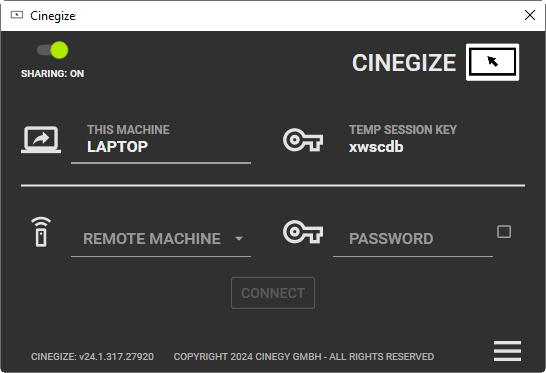
In the corresponding fields, you will see the name of the host machine and the temporary session key that you need to provide to the client machine to connect.
Client Mode
Make sure that the switcher "Sharing" is in the "OFF" position for work in client mode. There is no need to install and run the Cinegize service to work in this mode. In the corresponding fields of the main window insert the remote host machine name/IP address and the password generated on the host machine:
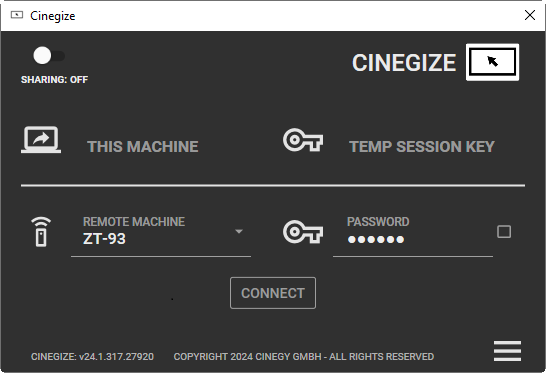
Connection
|
After specifying the host credentials on the client machine, click the "Connect" button. |
The connection process will be displayed:
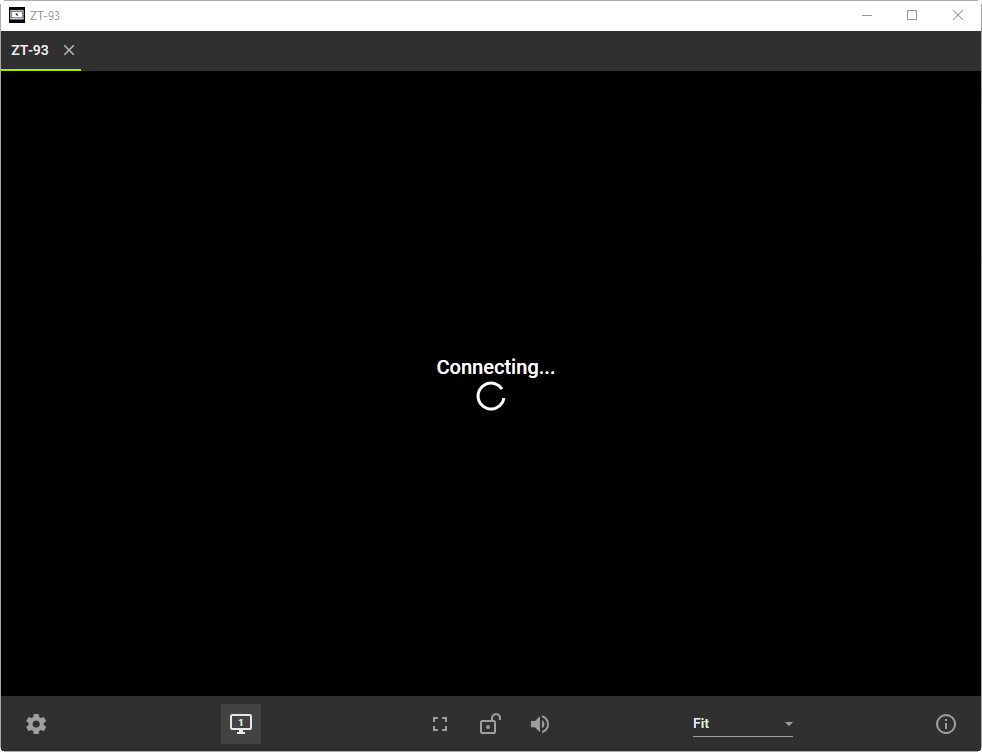
|
Note
|
If no connection can be established, an appropriate error message is displayed, indicating the reason for the failure. |
As the result of a successful connection, the "Cinegize" pane appears on the right side of the host machine desktop:

Click < and the window with info about the connected client will expand:
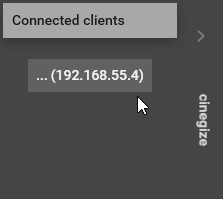
|
If a poor connection to the host is detected, this is indicated by a flashing red icon located in the upper right corner of the window. |
|
Tip
|
Detailed information on the performance of Cinegize is available in the log files stored in the following path: C:\ProgramData\Cinegy\Cinegize. |
Controls
The connection settings and client console window controls are located at the bottom of the window:

|
Use this button for quick access to the settings of the current connection. The following configurator appears: |
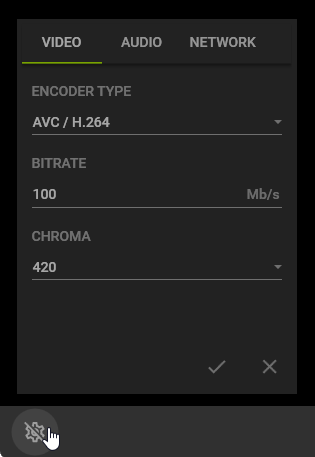
Here you can re-configure video and audio quality parameters of the session, as well as network configuration.
|
Important
|
Refer to the Settings section for more details about connection configuration. |
|
One or more monitor icons are displayed here. The number of icons corresponds to the number of monitors on the host machine. Clicking on the icons allows switching between monitors. |
|
Use this button to expand the application window to full screen. You can also switch between normal mode and full-screen mode using the AltGr+F keyboard shortcut. |
|
Tip
|
In full-screen mode, you can access the connection controls through the toolbar, which becomes available when hovering the mouse pointer over the top of the window. |
|
This button sends the |
|
This button provides access to the volume slider, which allows you to change the volume level of your stream by moving the slider with your mouse. |
You can easily adjust the display scale of the application by selecting the desired scale from the "Fit" drop-down list in the lower left corner:
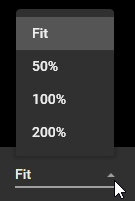
|
Press this icon to display a pop-up window with actual stream data (such as framerate, bitrate, etc.): |
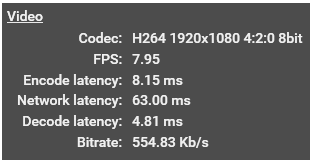
|
Tip
|
The shortcut for this action is AltGr+I. |
Windows Service Mode
This mode provides automatic hosting after machine startup.
|
Note
|
To operate in this mode, you should install and start the Cinegize service as described in the Service Settings paragraph. |
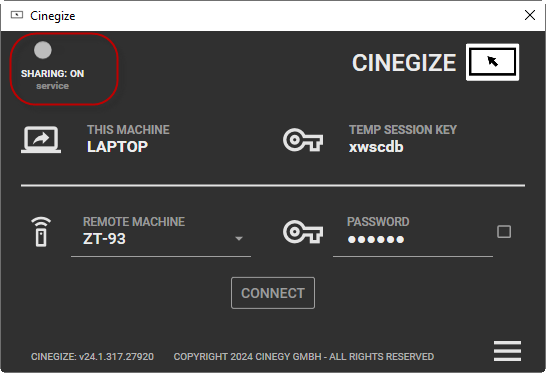
Once installed, the Cinegize service will automatically start as a host when the machine boots, allowing the user to connect to the login screen as if he were physically sitting in front of it. This is perfect for providing remote access to a virtual workstation hosted in a LAN-connected data center, or for using centralized equipment that is physically isolated from an operator workstation.







